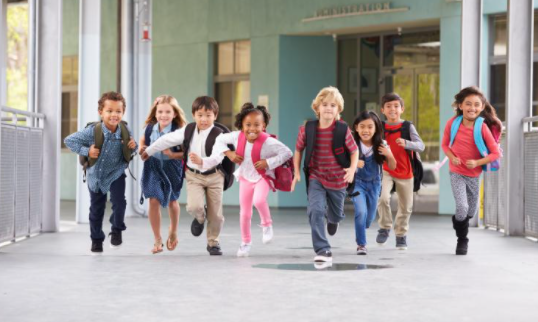With 897 million school children around the world affected by disruptions to their education, senior officials from UNICEF and the European Union reiterated their support to ensure the right to education for all.
The coronavirus pandemic, conflict, poverty, culture, legislation, gender, a lack of teachers, disability: the reasons for children not going to school are sadly numerous. For the most vulnerable children, the longer they stay out of school, the more likely they are to never return and to miss out on the learning, nutrition and health services that schools provide. The European Union and UNICEF are partners to address the root causes of disruptions to education, to mitigate the impact, and to effect change.
“We are on the brink of a catastrophic education emergency,” said Henrietta Fore, UNICEF Executive Director. “Our message is clear: No effort should be spared to keep schools open and prioritize them in reopening plans.”
“Providing our children with education is our duty and responsibility, to ensure they can build their own future with the best possible tools at hand,” said Josep Borrell, EU High Representative for Foreign Affairs and Security Policy/Vice-President of the European Commission. “Far too many children today are living in home conditions that prevent them from getting the education that they deserve. The COVID-19 crisis has exacerbated an already far too big a gap. It is vital that children’s views, rights and dreams are at the forefront of education policy and decisions. Through education, we are building the next generation. That is why it is important that we give all children around the world an equal opportunity.”
Read also
To further advocate for the need to prioritise children’s education, UNICEF and the European Union launched a video campaign(link is external) through social media, with the objective of reaching 100 million people worldwide, including policy makers. The video highlights some of the difficulties that children around the world face in receiving a full time education. The video uses seemingly easy to achieve tips for parents and communities on how to support their children’s learning, highlighting the need for children to attend school on a regular basis.
European Union
























































